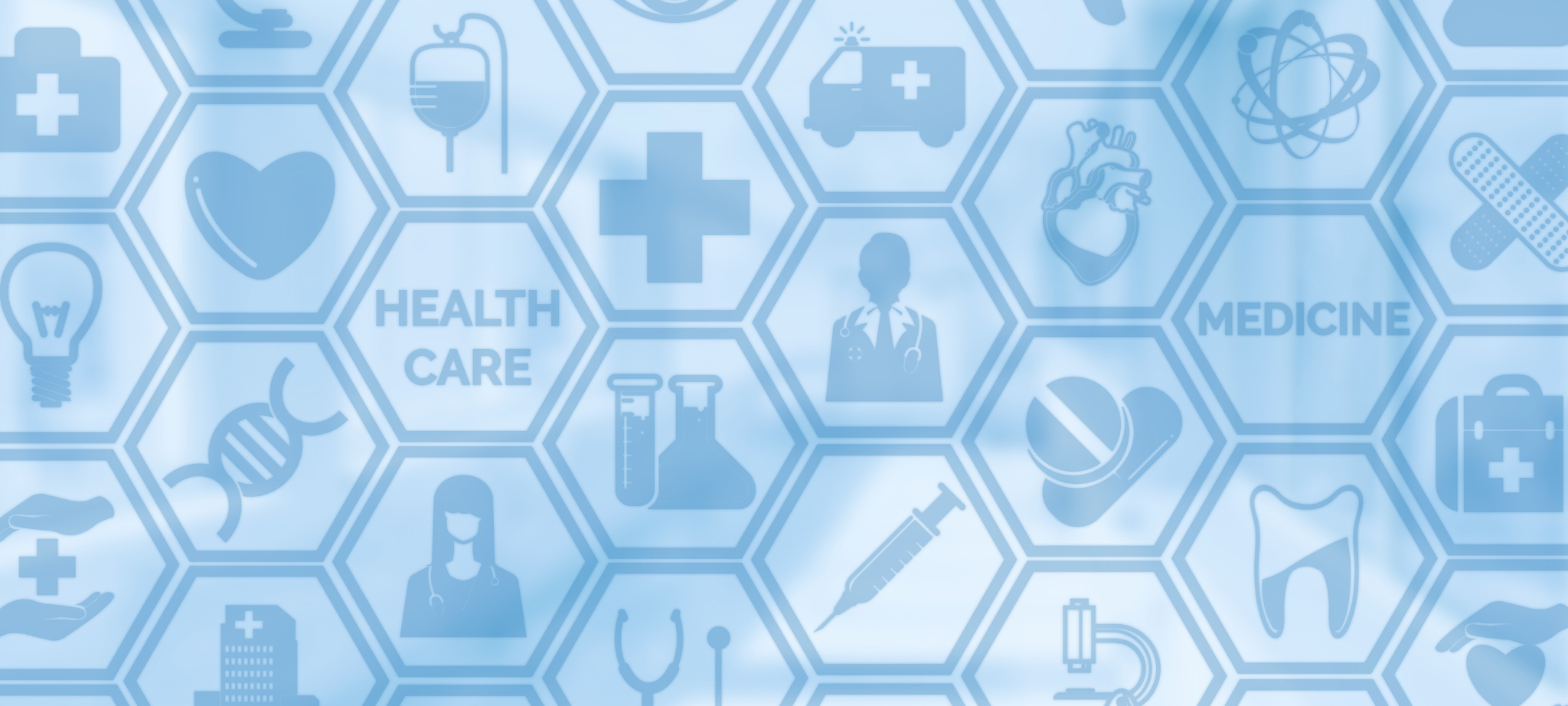Healthcare professionals are required to stay up-to-date with the latest medical advancements and industry practices to provide the best care possible to their patients.
This is where healthcare learning management systems (LMS) come in, providing healthcare organizations with an efficient and effective way to train and educate their employees.
As the healthcare industry continues to evolve, it's essential to have the right healthcare learning management system in place to ensure that healthcare professionals have the necessary skills and knowledge to perform their roles successfully.
In 2023, there are several healthcare learning management systems available in the market, each with its unique features and benefits.
In this article, we will take a closer look at the best healthcare LMS available in 2023.
We will explore their features to help healthcare organizations make an informed decision when choosing the right LMS for healthcare for their specific needs.
By the end of this article, you will have a better understanding of which healthcare LMS is best suited for your organization.
What Is LMS In Healthcare?
LMS stands for Learning Management System, and it refers to a software application or platform that allows healthcare organizations to create, manage, deliver, and track educational courses and training programs for their employees.
In the healthcare industry, LMS for healthcare can be used to deliver training on a wide range of topics, including patient safety, clinical skills, compliance, and regulatory requirements.
LMS in healthcare provides a convenient and efficient way for healthcare organizations to train their staff, including doctors, nurses, and administrative personnel.
Healthcare LMS allows healthcare professionals to access training materials anytime and from anywhere, enabling them to learn at their own pace, which helps them to improve their knowledge and skills.
LMS for healthcare is designed to be user-friendly and flexible, and it offers a range of features that allow healthcare organizations to manage their training programs efficiently.
Some of these features include content creation tools, learner management systems, performance tracking, and reporting.
With healthcare LMS, healthcare organizations can ensure that their staff is up-to-date with the latest medical advancements and industry practices, which can ultimately lead to improved patient outcomes.
Importance Of Healthcare Compliance Training Programs
Healthcare training program is critical for healthcare organizations to ensure that their staff is aware of and adhering to the various regulations and guidelines that govern the industry.
These healthcare training programs are designed to educate healthcare professionals on the various compliance requirements, including data privacy laws, patient rights, and medical record-keeping, among others.
The importance of healthcare compliance training programs cannot be overstated, as failure to comply with industry regulations can result in severe consequences for healthcare organizations.
These consequences can range from financial penalties and loss of reputation to legal action and even criminal charges.
Compliance training programs also help healthcare organizations to create a culture of compliance, where all staff members understand the importance of following regulations and guidelines to ensure the safety and well-being of patients.
This culture of compliance can help to reduce the risk of non-compliance and ultimately improve patient outcomes.
Moreover, these healthcare training programs are crucial in keeping up with changing regulations and guidelines in the healthcare industry.
As the industry continues to evolve, healthcare professionals need to stay updated with the latest compliance requirements to avoid potential risks and penalties.
In summary, compliance training programs for healthcare are essential for organizations to ensure that their staff members are aware of and adhere to the various regulations and guidelines that govern the industry.
These training programs are critical in promoting a culture of compliance, reducing the risk of non-compliance, and ultimately improving patient outcomes.
Learning Management System Challenges
1. Role Delegation
Determining the right roles and permissions for users can be complex, especially in sophisticated LMS platforms.
There's a need to balance giving staff and educators adequate access without compromising system security.
Furthermore, each role, from content creation to basic navigation, may require distinct training to use the LMS effectively.
2. User Adoption and Engagement
If users are accustomed to a prior system or learning method, overcoming resistance to change can be a significant hurdle.
The platform's intuitiveness plays a significant role; users are less likely to engage if they find it hard to navigate or understand.
Regular feedback loops, user training, and ensuring content is engaging and relevant are critical.
3. Time and Resource Management
Coordinating the numerous tasks associated with an LMS, from content scheduling to system maintenance, can be time-consuming.
It’s essential to prioritise tasks, allocate resources wisely, and meet timelines for content release or platform updates.
4. IT Resource Management
Ensuring that the technical backend of the LMS runs smoothly is vital.
The technical backend includes regular software updates, handling server capacities, especially during high user load, dealing with bugs or technical issues, and ensuring data security.
Coordinating with the IT team and ensuring they have the necessary resources and training is also crucial.
5. Content Creation And Publishing
Quality content is the backbone of any LMS. Creating and updating this content requires effort and expertise.
Ensuring that the content is sound, engaging, up-to-date, and relevant to the learners is a challenge.
Moreover, the publishing workflow, including content review, approval, and scheduling, needs to be managed efficiently by the LMS users as well.
Best Healthcare Learning Management Systems In 2023
Let’s have a look at the best healthcare learning management systems out there.
1. Oreed
Are you on the lookout for an all-in-one training platform to take your employee management to the next level?
Look no further than Oreed's LMS for healthcare!!
Enhanced Employee Awareness
Oreed's platform provides an exceptional way to improve employee awareness, giving you a complete view of your workforce.
This allows you to make better-informed, evidence-based decisions that can help your business thrive.
Development Of Training/Courses
That's not all - Oreed's LMS also enables you to develop tailored training courses that meet your employees' specific needs.
Say goodbye to generic courses that don't resonate with your team - Oreed's healthcare learning management system provides a solution that's truly bespoke to your business.
Measure The Impact Of The Training
Once the training is complete, Oreed's LMS allows you to measure the impact and effectiveness of your training courses, so you can make informed decisions about your workforce's ongoing development.
So what are you waiting for? Book a demo with Oreed's healthcare learning management system today and find out more about our features.
Promote lifelong learning through Oreed by experiencing the most powerful all-in-one training and development intelligent platform that streamlines all your organization's learning, training, and development activities in one place.
2. Day One
Day One Technologies is a UK-based e-learning solutions provider located in West Yorkshire.
They specialize in tailoring their e-learning solutions to meet the individual needs and unique environment of each client.
Day One Technologies adopts a modular approach when developing their healthcare Learning Management Systems (LMS), ensuring that their clients have a user-friendly system that includes all the necessary features without any unnecessary features that could add unnecessary complexity.
Despite their minimalist approach, Day One Technologies' LMS is highly adaptable, and additional modules are always available for future enhancement.
This makes their LMS an ideal choice for organizations looking for a fully future-proof learning management system.
3. Kallidus
Kallidus is a reputable and reliable Learning Management System (LMS) that has been tried and tested over time, making it an excellent choice for healthcare applications.
It is a feature-rich and highly configurable LMS, making it suitable for use in healthcare environments.
In our review, Kallidus stood out for its comprehensive learning and talent suite, which offers a complete e-learning and training solution.
Kallidus Learn LMS is particularly effective in scheduling learning activities and has been successfully deployed in numerous NHS bodies, demonstrating its capability and reliability.
4. Docebo
Docebo is a lesser-known Learning Management System (LMS) in the UK but deserves significant consideration.
It is a highly capable LMS that offers advanced extended enterprise functionality, which is increasingly important in healthcare.
Docebo is at the forefront of innovation in the LMS market, regularly launching new features with a particular emphasis on integration and apps.
The Docebo LMS is fully mobile-compatible and is a leader in mobile learning (m-learning) and app development.
5. iSpring
iSpring is a well-established LMS provider that has been delivering e-learning solutions to the healthcare and pharmaceutical industries for over 17 years.
They have an impressive track record, boasting an extensive client list that includes Pfizer, Allergan, Cardinal Health, Novartis, and Johnson & Johnson.
To learn more about their work with these clients and others, visit the iSpring website.
iSpring Suite Max offers a comprehensive solution for e-learning content development.
7. TOPYX LMS
TOPYX learning management system is ideal for large entities in search of healthcare-centric training platforms.
It is famous because of its unparalleled features but particularly for its adaptability in dynamic sectors.
A notable characteristic is its promotion of collaborative learning, boasting features like integrated chat, web-based meetings, discussion forums, and expansive media galleries.
All these features are known for recognizing the collaborative nature of healthcare professions.
7. CertCentral
CertCentral is a platform that specializes as a Continuing Medical Education (CME) tool that caters especially to healthcare experts such as doctors, nurses, and other similar professionals.
Its strength lies in its alignment with up-to-date standards and protocols in the medical realm.
It facilitates seamless adherence to guidelines set by prominent bodies like AMA, ANA, NASW, and the APA which ensure that professionals stay compliant and informed.
8. EthosCE
Specifically tailored for the healthcare sector, EthosCE is preferred by medical associations, healthcare institutions, academic entities, and companies focused on medical education.
With a primary focus on medical education, it not only offers analytics in compliance with PARS but also seamlessly integrates with ACCME web services.
Additionally, it provides a suite of tools empowering training supervisors to oversee and implement effective medical risk mitigation strategies.
9. SAP Litmos
Litmos user-friendly interface makes it one of the most used LMS in the healthcare industry.
It offers a holistic solution that allows users to craft courses in-platform or integrate varied content forms such as audio, videos, presentations, and SCORM modules.
What sets it apart is its extensive ready-made course library that addresses vital healthcare domains.
It covers subjects ranging from health policy and regulatory compliance (like an introduction to HIPAA's privacy and security aspects) to broader topics such as general health, safety, and European care certification standards.
Final Thoughts
In conclusion, the healthcare industry is evolving rapidly, and the need for effective learning management systems has never been greater.
Our review of the best healthcare learning management systems in 2023 has shown that there are a variety of excellent platforms available that can help healthcare organizations improve employee training, compliance, and overall business outcomes.
Whether you're looking for a platform that offers tailored training courses, streamlined compliance management, or powerful analytics, there's an LMS out there that can meet your needs.
So take the time to evaluate your options, and choose an LMS that can help your organization achieve its goals in the years to come.
FAQs
1. What is the future of learning management systems?
The future of learning management systems (LMS) is likely to be shaped by advancements in technology, changing user preferences and needs, and emerging trends in education and training.
LMS will increasingly adopt AI and machine learning algorithms to provide personalized learning experiences to learners, catering to their unique needs and learning styles.
Mobile learning will become more important, allowing learners to access learning content on the go.
Social learning will also become a prominent feature of LMS, allowing learners to connect with peers and mentors to share knowledge and expertise.
Overall, LMS will continue to evolve to meet the changing needs of learners and educators in the digital age.
2. What makes a great learning management system?
A great learning management system (LMS) should have several key features.
Firstly, it should be easy to use, with an intuitive interface and clear navigation.
Secondly, it should provide a wide range of learning materials, such as videos, interactive quizzes, and assessments.
Thirdly, it should be customizable, allowing educators to tailor the learning experience to the needs of individual learners.
Fourthly, it should be secure, with robust authentication and authorization mechanisms to protect sensitive data.
Lastly, it should offer comprehensive analytics and reporting tools, allowing educators to track learner progress and identify areas for improvement.
A great LMS should ultimately provide a seamless and engaging learning experience for learners while supporting the instructional goals of educators.
3. What is the importance of online compliance training for healthcare professionals, and how can it improve regulatory compliance and patient safety?
Online compliance training for healthcare professionals is critical to ensure regulatory compliance and maintain high standards of patient safety.
It provides an efficient and effective way to train a large number of employees, regardless of their location or work schedule.
The training should cover key topics such as privacy and security regulations, patient rights, HIPAA, and infection control.
Effective online compliance training should be engaging, interactive, and relevant to the specific job responsibilities of the learner.
It should also include regular assessments to measure knowledge retention and ensure that employees are equipped to handle compliance challenges in real-world scenarios.
By implementing robust online compliance training for healthcare programs, healthcare organizations can improve the quality of care, reduce risk and liability, and foster a culture of continuous learning and improvement.




